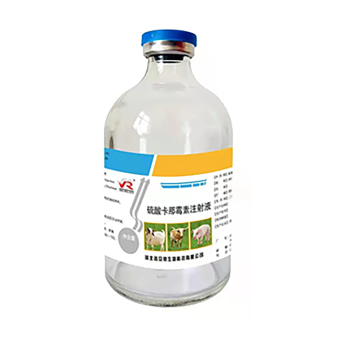- Afrikaans
- Albanian
- Amharic
- Arabic
- Armenian
- Azerbaijani
- Basque
- Belarusian
- Bengali
- Bosnian
- Bulgarian
- Catalan
- Cebuano
- Corsican
- Croatian
- Czech
- Danish
- Dutch
- English
- Esperanto
- Estonian
- Finnish
- French
- Frisian
- Galician
- Georgian
- German
- Greek
- Gujarati
- Haitian Creole
- hausa
- hawaiian
- Hebrew
- Hindi
- Miao
- Hungarian
- Icelandic
- igbo
- Indonesian
- irish
- Italian
- Japanese
- Javanese
- Kannada
- kazakh
- Khmer
- Rwandese
- Korean
- Kurdish
- Kyrgyz
- Lao
- Latin
- Latvian
- Lithuanian
- Luxembourgish
- Macedonian
- Malgashi
- Malay
- Malayalam
- Maltese
- Maori
- Marathi
- Mongolian
- Myanmar
- Nepali
- Norwegian
- Norwegian
- Occitan
- Pashto
- Persian
- Polish
- Portuguese
- Punjabi
- Romanian
- Russian
- Samoan
- Scottish Gaelic
- Serbian
- Sesotho
- Shona
- Sindhi
- Sinhala
- Slovak
- Slovenian
- Somali
- Spanish
- Sundanese
- Swahili
- Swedish
- Tagalog
- Tajik
- Tamil
- Tatar
- Telugu
- Thai
- Turkish
- Turkmen
- Ukrainian
- Urdu
- Uighur
- Uzbek
- Vietnamese
- Welsh
- Bantu
- Yiddish
- Yoruba
- Zulu
9 月 . 10, 2024 18:30 Back to list
Best Medicine for Upper Respiratory Infection | Effective Treatments and Relief
The Best Medicines for Upper Respiratory Infections
Upper respiratory infections (URIs) are among the most common illnesses affecting people of all ages. They can manifest in various forms, such as the common cold, sinusitis, or pharyngitis. While URIs are usually caused by viral infections, they can sometimes lead to bacterial complications. Understanding the best medicine for managing URIs is crucial not only for alleviating symptoms but also for promoting recovery.
Over-the-Counter (OTC) Medications
For most people, OTC medications are sufficient to relieve symptoms associated with URIs. These include
1. Decongestants Medications like pseudoephedrine (Sudafed) help relieve nasal congestion by narrowing blood vessels in the nasal passages. They are useful for individuals suffering from a stuffy nose due to a cold or sinus infection. However, people with hypertension should consult a healthcare provider before using decongestants.
2. Antihistamines Drugs such as diphenhydramine (Benadryl) and loratadine (Claritin) can help alleviate sneezing, runny nose, and itchy eyes, particularly in cases where allergies play a role. While first-generation antihistamines can cause drowsiness, newer formulations generally have a reduced sedative effect.
3. Pain Relievers Nonsteroidal anti-inflammatory drugs (NSAIDs) like ibuprofen (Advil, Motrin) and acetaminophen (Tylenol) can help reduce fever and alleviate aches and pains often associated with URIs. These medications are beneficial in managing general discomfort and promoting rest.
Prescription Medications
what is the best medicine for an upper respiratory infection

In some cases, especially when symptoms persist or worsen, seeking medical advice is essential. Healthcare providers may prescribe antibiotics if a bacterial infection is diagnosed. However, it's crucial to understand that antibiotics are ineffective against viral infections.
Additionally, some individuals with chronic respiratory conditions may require specific medications. For instance, inhalers or steroids may be prescribed for asthmatic patients experiencing URI overlaps.
Home Remedies and Supportive Care
While medication is vital, complementary approaches can enhance recovery from URIs. Staying hydrated, using saline nasal sprays, and employing humidifiers can alleviate symptoms. Moreover, rest is crucial, as it allows the immune system to effectively combat the infection.
When to See a Doctor
Most URIs are self-limiting and resolve within a week or two. However, if symptoms are severe, persistent, or accompanied by high fever, difficulty breathing, or chest pain, medical attention is warranted.
Conclusion
Upper respiratory infections are common and often manageable with the right approach. Over-the-counter medications can effectively relieve symptoms, while prescription medications may be necessary for bacterial infections or chronic conditions. As always, consulting with a healthcare provider for tailored advice is the best way to ensure effective treatment and recovery.
-
The Power of Radix Isatidis Extract for Your Health and Wellness
NewsOct.29,2024
-
Neomycin Sulfate Soluble Powder: A Versatile Solution for Pet Health
NewsOct.29,2024
-
Lincomycin Hydrochloride Soluble Powder – The Essential Solution
NewsOct.29,2024
-
Garamycin Gentamicin Sulfate for Effective Infection Control
NewsOct.29,2024
-
Doxycycline Hyclate Soluble Powder: Your Antibiotic Needs
NewsOct.29,2024
-
Tilmicosin Premix: The Ultimate Solution for Poultry Health
NewsOct.29,2024













